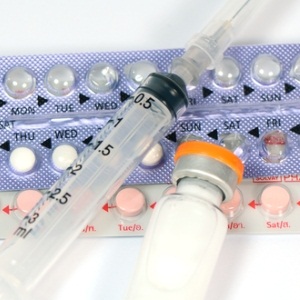
Women who use a specific type of injectable birth control have a slightly higher risk of HIV infection than those who take the pill, said a study on Friday.
While the authors noted the link was "statistically significant", they warned it was not enough on its own to justify a complete withdrawal of the drug commonly known by its brand name, Depo-Provera, used by millions of women.
The health risks of pulling the medicine from shelves may far outweigh the potential preventable HIV infections, the authors argued in a paper published in prestigious medical journal The Lancet Infectious Diseases.
A meta-analysis of 12 studies involving nearly 40,000 women in sub-Saharan Africa, showed that use of depot medroxyprogesterone acetate (DMPA), "increases a woman's chance of becoming infected with HIV by 40 percent compared with women using other contraceptive methods or no method," said a statement.
"Although statistically significant, this represents only a moderate increase in relative risk," it added.
Read: Vaginal ring to prevent HIV, herpes and pregnancy
Risk is higher for some
The increase in risk was somewhat lower among women "in the general population" than for those already at higher HIV risk, like sex workers.
The analysis showed no increased risk for users of other contraceptive drugs. All the studies had factored in condom use.
"The moderate elevation in risk observed in our study is not enough to justify a complete withdrawal of DMPA for women in the general population," said study co-author Lauren Ralph of the University of California at Berkeley.
Banning DMPA, the most widely used injectable contraceptive, "would leave many women without immediate access to alternative, effective contraceptive options.
"This is likely to lead to more unintended pregnancies, and because childbirth remains life-threatening in many developing countries, could increase overall deaths among women."
Further research was urgently needed to examine the danger for the highest risk women like sex workers and those in a relationship with an HIV-positive partner.
A potential association between DMPA and higher HIV-risk was first noted in 1991, but numerous studies have failed to show a direct causal link.
Read more:
DMPA injection not linked to diabetes
Birth control pills may increase breast cancer risk
Men on new HIV preventative drug ditching condoms
Image: Injectable birth control and oral birth control from Shutterstock




 Publications
Publications
 Partners
Partners











